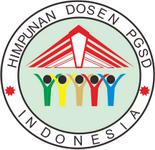THE EFFECT OF PROBLEM-BASED LEARNING MODEL WITH TARL APPROACH ON NATURAL AND SOCIAL SCIENCES LEARNING OUTCOMES AND CRITICAL THINKING SKILLS IN ELEMENTARY SCHOOL
DOI:
https://doi.org/10.31949/jcp.v11i3.13582Abstract
This research investigates the effect of integrating the Problem-Based Learning (PBL) model with the Teaching at the Right Level (TaRL) approach on fifth-grade students’ critical thinking skills and learning outcomes in natural and social sciences. The background highlights low student achievement and inadequate critical thinking, often caused by conventional, teacher-centered methods that fail to accommodate individual differences. Using a quasi-experimental design with a nonequivalent control group (N=56), students were divided into experimental and control classes. The experimental class received PBL-TaRL instruction over eight weeks (16 sessions), while the control class followed conventional teaching. Pretests and posttests were used to assess both critical thinking and learning outcomes. MANOVA results (Wilks’ Lambda = 0.029; p < 0.05) revealed significant differences, with the experimental class showing greater improvement and very large effect sizes (partial eta squared: 0.970 and 0.958). These findings demonstrate that combining PBL and TaRL fosters higher-order thinking and academic achievement by promoting active engagement and adapting materials to students’ proficiency levels. This research recommends broader implementation of PBL-TaRL within the Merdeka Curriculum and highlights the need for teacher training in task design and differentiation to maximize its impact in primary schools.
Keywords:
Problem-Based Learning, Teaching at The Right Levvel, critical thinking skills, natural and social sciences learning outcomes, elementary schoolDownloads
References
Ahyar, A., Nurhidayah, N., & Saputra, A. (2022). Implementasi model pembelajaran TaRL dalam meningkatan kemampuan literasi dasar membaca peserta didik di sekolah dasar kelas awal. JIIP - Jurnal Ilmiah Ilmu Pendidikan, 5(11), 5241–5246. https://doi.org/10.54371/jiip.v5i11.1242
Ariadila, S. N., Silalahi, Y. F. N., Fadiyah, F. H., Jamaluddin, U., & Setiawan, S. (2023). Analisis pentingnya keterampilan berpikir kritis terhadap pembelajaran bagi siswa. Jurnal Ilmiah Wahana Pendidikan, 9(20), 664–669. https://doi.org/10.5281/zenodo.8436970
Betakore, Y., & Boiliu, F. M. (2022). Penerapan metode problem based learning dalam pendidikan agama kristen. Edukatif : Jurnal Ilmu Pendidikan, 4(3), 4315–4324. https://doi.org/10.31004/edukatif.v4i3.2819
Eismawati, E., Koeswanti, H. D., & Radia, E. H. (2019). Peningkatan hasil belajar matematika melalui model pembelajaran problem based learning (PBL) siswa kelas 4 SD. Jurnal Mercumatika : Jurnal Penelitian Matematika Dan Pendidikan Matematika, 3(2), 71–78. https://doi.org/ 10.26486/jm.v3i2.694
Fitriani, S. N. (2022). Analisis peningkatan kemampuan literasi siswa dengan metode ADABTA melalui pendekatan TARL. BADA’A: Jurnal Ilmiah Pendidikan Dasar, 4(1), 69–78. https://doi.org/10.37216/badaa.v4i1.580
Gignac, G. E., & Szodorai, E. T. (2016). Effect size guidelines for individual differences researchers. Personality and Individual Differences, 102, 74–78. https://doi.org/ 10.1016/j.paid.2016.06.069
Haryanti, Y. D. (2017). Model problem based learning membangun kemampuan berpikir kritis siswa sekolah dasar. Jurnal Cakrawala Pendas, 3(2). https://doi.org/10.31949/jcp.v3i2.596
Karlina, R., & Wirdati, W. (2023). Pelaksanaan Model Problem Based Learning (PBL) dalam Meningkatkan Kemampuan Berpikir Kritis Siswa di SMA Negeri 7 Padang. As-Sabiqun, 5(3), 738–751. https://doi.org/10.36088/assabiqun.v5i3.3306
Kemendikbud. (2022). Hal-hal Esensial Kurikulum Merdeka di Jenjang SD. https://ditpsd.kemdikbud.go.id/artikel/detail/hal-hal-esensial-kurikulum-merdeka-di-jenjang-sd
Kumala, F. N. (2016). Pembelajaran IPA Sekolah Dasar. Malang, Indonesia: Ediide Infografika.
Magdalena, I., Hasna A., A., Auliya, D., & Ariani, R. (2020). Analisis kemampuan berpikir kritis siswa kelas vi dalam pembelajaran ipa di sdn cipete 2. PENSA : Jurnal Pendidikan Dan Ilmu Sosial, 2(1), 153–162. https://doi.org/10.36088/pensa.v2i1.848
Dukalang, M., & Sudirman. (2024). Minat belajar dan disiplin belajar terhadap hasil belajar siswa. Jurnal Pendidikan Ekonomi Dan Bisnis, 1(1), 41–50. https://doi.org/10.70311/jpeb.v1i1.4
Mustofa, M., Alfan, M., & Arifin, S. (2024). Implementasi pendekatan teaching at the right level (TARL) untuk meningkatkan kemampuan berpikir kritis dan keterlibatan siswa sekolah dasar. ELSE (Elementary School Education Journal), 8(3). https://doi.org/10.30651/else.v8i3.24358
Winarti, N., Maula, L. H., Amalia, A. R., Pratiwi, N. L. A., & Nandang. (2022). Penerapan model pembelajaran project based learning untuk meningkatkan kemampuan berpikir kritis siswa kelas iii sekolah dasar. Jurnal Cakrawala Pendas, 8(3), 552–563. https://doi.org/10.31949/jcp.v8i3.2419
Ningrum, M. C., Juwono, B., & Sucahyo, I. (2023). Implementasi pendekatan TaRL untuk meningkatkan motivasi belajar peserta didik pada pembelajaran fisika. PENDIPA Journal of Science Education, 7(1), 94–99. https://doi.org/10.33369/pendipa.7.1.94-99
Nuraida, D. (2019). Peran Guru dalam Mengembangkan Keterampilan Berpikir Kritis Siswa dalam Proses Pembelajaran. Jurnal Teladan, 4(1), 51–59.
OECD. (2023). PISA 2022 Results Factsheets Indonesia. OECD (Organisation for Economic Co-Operation and Development) Publication, 1–9. https://www.oecd.org/en/publications/pisa-2022-results-volume-i-and-ii-country-notes_ed6fbcc5-en/indonesia_c2e1ae0e-en.html
Rahman, R., & Fuad, M. (2023). Implementasi kurikulum merdeka belajar dalam pembelajaran ipas di sekolah dasar. DISCOURSE: Indonesian Journal of Social Studies and Education, 1(1), 75–80. https://doi.org/10.69875/djosse.v1i1.103
Tabachnick, B. G., & Fidell, L. S. (2025). Multivariate Analysis of Variance (MANOVA). In M. Lovric (Ed.), International Encyclopedia of Statistical Science (pp. 1616–1619). Springer Berlin Heidelberg. https://doi.org/10.1007/978-3-662-69359-9_398
Widodo, S., & Wardani, R. K. (2020). Mengajarkan Keterampilan Abad 21 4C (Communication, Collaboration, Critical Thinking and Problem Solving, Creativity and Innovation). Modeling: Jurnal Program Studi PGMI, 7(September), 185–197. https://doi.org/10.69896/modeling.v7i2.665
Wijayanti, I. D., & Ekantini, A. (2023). Implementasi kurikulum merdeka pada pembelajaran IPAS MI/SD. Pendas: Jurnal Ilmiah Pendidikan Dasar, 8(2).
Winangun, I. M. A. (2022). Analisis problematika proses pembelajaran IPA di sekolah dasar. Edukasi: Jurnal Pendidikan Dasar, 3(1), 37. https://doi.org/10.55115/edukasi.v3i1.2294
Published
How to Cite
Issue
Section
License
Copyright (c) 2025 Slamet Tri Widodo, Ana Fitrotun Nisa, Heri Maria Zulfiati

This work is licensed under a Creative Commons Attribution-ShareAlike 4.0 International License.
Authors who publish with this journal agree to the following terms:
- Authors retain copyright and grant the journal right of first publication with the work simultaneously licensed under a Creative Commons Attribution License that allows others to share the work with an acknowledgment of the work's authorship and initial publication in this journal.
- Authors are able to enter into separate, additional contractual arrangements for the non-exclusive distribution of the journal's published version of the work (e.g., post it to an institutional repository or publish it in a book), with an acknowledgment of its initial publication in this journal.
- Authors are permitted and encouraged to post their work online (e.g., in institutional repositories or on their website) prior to and during the submission process, as it can lead to productive exchanges, as well as earlier and greater citation of published work (See The Effect of Open Access).


